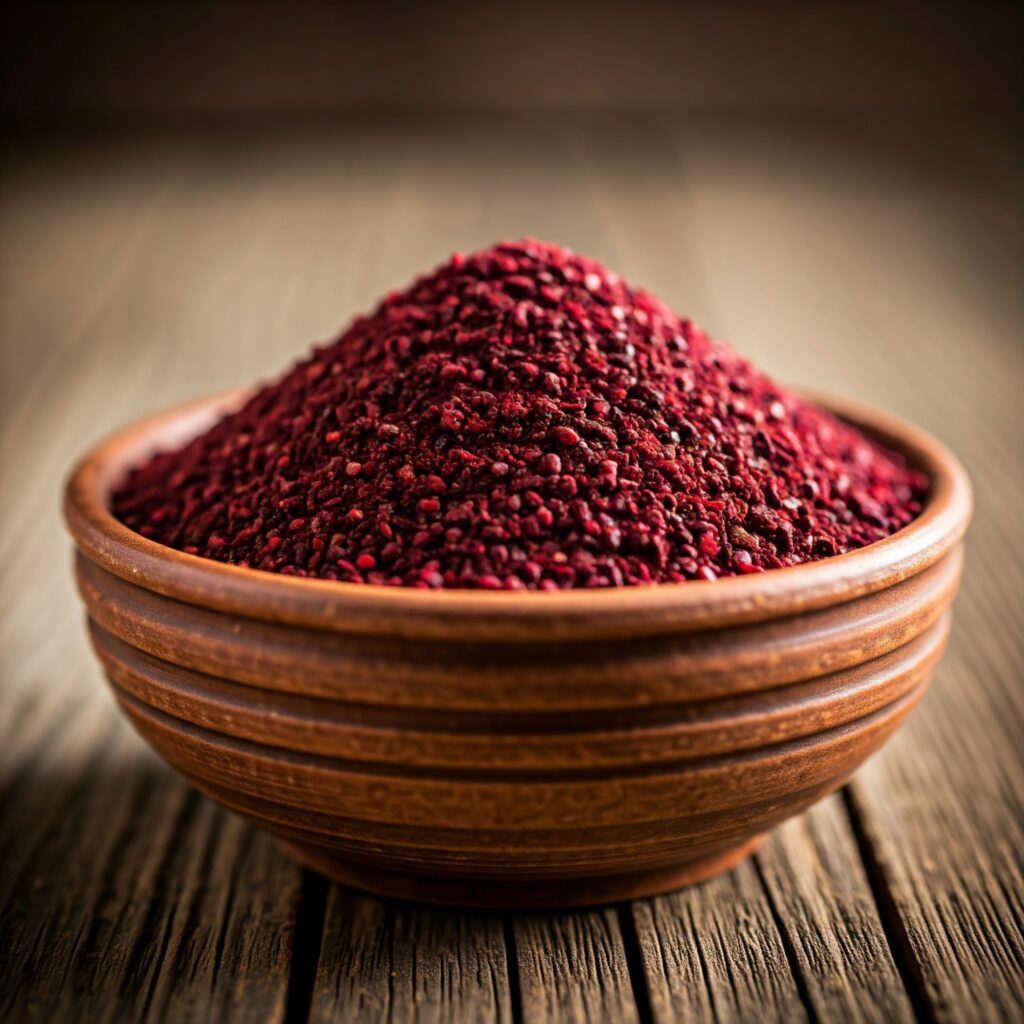Sumac: A Versatile Herb with a Tangy Twist
Sumac, a vibrant red spice with a tangy, lemony flavor, has been used for centuries in Middle Eastern and Mediterranean cuisines. In addition to its culinary applications, sumac offers a range of potential health benefits. Let’s delve into the world of this versatile herb.

Health Benefits of Sumac
- Antioxidant Powerhouse: Sumac is packed with antioxidants, which help combat oxidative stress and protect your cells from damage. Furthermore, these antioxidants may contribute to overall health and well-being.
- Anti-inflammatory Properties: It possesses anti-inflammatory properties that can help reduce inflammation in the body. Consequently, sumac may alleviate symptoms of inflammatory conditions.
- Digestive Aid: Sumac can help improve digestion by stimulating the production of digestive enzymes. As a result, it can alleviate issues like bloating and indigestion.
- Blood Sugar Control: Some studies suggest that sumac may help regulate blood sugar levels. Therefore, it could be beneficial for individuals with diabetes or prediabetes.
- Weight Management: Sumac may aid in weight management by boosting metabolism and reducing appetite. Thus, it can be a valuable tool for those looking to shed extra pounds.
Culinary Uses of Sumac
Sumac’s tangy flavor adds a unique twist to various dishes:
- Spice: Sprinkle sumac on grilled meats, roasted vegetables, and salads for a burst of flavor.
- Marinade: Create delicious marinades for chicken, fish, or tofu by combining sumac with olive oil, lemon juice, and other spices.
- Tea: Steep sumac in hot water to make a refreshing and slightly tart tea.
Safety Considerations
While sumac offers numerous benefits, it’s important to exercise caution. Some species of sumac, like poison ivy, can cause allergic reactions. Therefore, ensure you’re using the edible variety, often referred to as Rhus coriaria.

Incorporating Sumac into Your Diet
To reap the benefits of sumac, consider these tips:
- Experiment with Flavors: Try adding sumac to your favorite dishes to elevate their taste.
- Explore Middle Eastern Cuisine: Middle Eastern cuisine often incorporates sumac, so don’t hesitate to try new recipes.
- Make Your Own Sumac: If you’re adventurous, you can even try making your own sumac from dried sumac berries.
Remember to consult with a healthcare professional before making significant dietary changes or using herbs for medicinal purposes.
By incorporating sumac into your diet, you can enjoy its unique flavor and potential health benefits.





